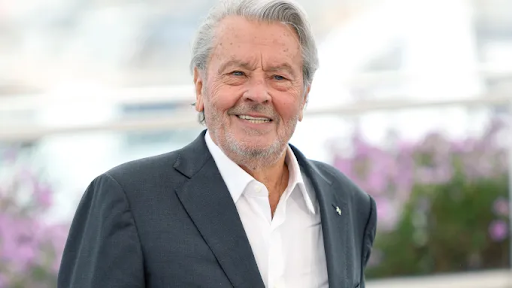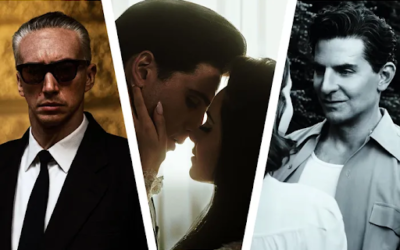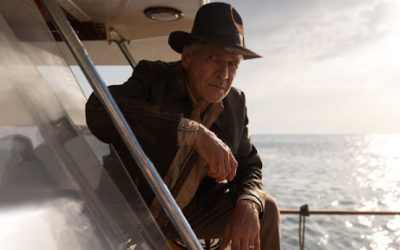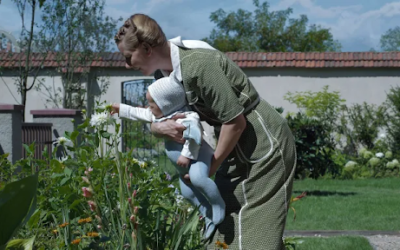Source: Deadline
Considering just how many world-famous actors have their careers rooted in Hollywood and elsewhere within the United States’ film industry, it can be easy to forget that there are several others who have succeeded in making names for themselves within different regions across the globe. France, for example, has produced a solid handful of well-regarded film stars that have not only proven quite popular within their native country, but have been able to branch out to other parts of the world as well, with the likes of Omar Sy and Lea Sydoux being among the most recent French actors to make the transition into Hollywood filmmaking. Famous French actors are nothing new, of course, with the French New Wave of the 1960s being especially crucial for the rise of many of France’s most influential actors and filmmakers, many of whom are still widely regarded as one of the most important contributors to the cinematic medium. Among these individuals was actor Alain Delon, who made a name for himself by appearing in such films as “Le Samouraï” and “The Leopard”, some of which are said to be among the most impressively crafted in all of French cinema. To lose someone as prominent as Delon, for many, would be like losing a key piece of one’s history, which makes it all the more upsetting for some that, at the age of 88, Delon has passed away. According to a statement released by his children, Delon’s passing came during the morning hours of Sunday, August 18th, with the actor being surrounded by his closest family inside his home located in the French village of Doucy (around a hundred miles south of where Paris can be found) as his life finally came to an expected, but no less saddening end.
Delon’s life began in November of 1935, with his birth taking place in the Parisian suburb known as Sceaux. What followed was a somewhat overwhelming series of events that made Delon’s childhood and teenage years rather hectic: his parents divorced while he was still fairly young, he worked as a butcher inside his stepfather’s shop before signing up for military service, and it wasn’t long before he was sent to Southeast Asia to fight in the Battle of Dien Bien Phu in 1954. After returning to France in 1956 and moving to Paris shortly afterwards, Delon entered the world of cinema through the relationship he formed with Brigette Auber, an actress who had just recently been featured in “To Catch a Thief”, an Alfred Hitchcock-directed mystery set and shot in the French Riviera. Just a year later, Delon and Auber attended the 1957 Cannes Film Festival together, where the former would meet Jean-Claude Brialy, an up-and-coming actor and director, and George Baume, the man who would go on to be his personal agent. “I came down with a girl that I liked, who loved me…” Delon says to a masterclass he gave at Cannes in 2019 as he recalls this pivotal moment in his history, “… I took it all in, did the red carpet but even then, I felt at home… not least and I say this without pretension because it was made clear to me that I was not bad looking.”
Delon’s first major film role would ultimately come to him through his connection to his mistress Michèle Cordoue, who convinced her husband at the time, a filmmaker named Yves Allégret, to cast Delon in his upcoming feature “Quand la femme s’en mêle”. Delon has long been open about the impact the women in his life had on his career as a film star, speaking about the matter with those attending another masterclass he held at Cannes in 2019. “If I hadn’t met the women I met, I would have died long ago,” Delon claims. “It’s the women – I don’t know why – who loved me, who got me into this profession, who wanted me to do it, and who fought for me to do it”. After the release of “Quand la femme s’en mêle”, more acting roles came in Delon’s sights; among his earliest film appearances are those “Sois belle et tais-toi”, directed by Marc Allégret and also including Jean-Paul Belmando as one of its leading actors, and “Christine”, which sees Delon star alongside actor Romy Schneider with Pierre Gaspard-Huit serving as director. It wasn’t long until Delon and Schneider would commit to a romantic relationship not unlike that which they took part in on screen, and while their relationship would only last for five years, they remained quite friendly with one another, as evidenced by their reunion for the 1969 film “The Swimming Pool”.
As Delon’s life progressed further along, he found himself engaging with a variety of new romantic partners, including German actor/singer/model Nico and French actor Mirelle Darc, whom he met while shooting the 1969 gangster film “Jeff” and ended up being with for about fifteen years. It was during this time that Delon found himself being cast in even more high-profile features: the 1960 René Clément-directed crime thriller “Plein Soleil”; the 1962 Michaelangelo Antonioni-directed romantic drama “L’Eclisse”; and Luchino Visconti’s 1963 film “The Leopard”, for which Delon earned a Golden Globe nomination for Most Promising Male Newcomer. It was his collaboration with director Jean-Pierre Melville that Delon is said to have reached the height of his career, however; the success of their 1967 film “Le Samouraï” led to two more films – 1970’s “The Red Circle” and 1972’s “A Cop” – before Melville succumbed to a fatal heart attack in 1973.
Delon continued to act throughout most of the years that followed, appearing in too many crime thrillers to count while also experimenting with other genres from time to time. The 1976 Holocaust drama “Mr. Klein”, the 1984 melodrama “Notre Histoire”, and the 2008 comedy “Asterix at the Olympic Games”, are among the most notable films Delon appeared in during the years following his peak. His deteriorating health and various instances of family drama have made Delon’s personal life somewhat stressful as he continued to age, but in spite of everything, when news of Delon’s passing was announced to the public, reactions were overwhelmingly mournful, with French president Emmanuel Macron sharing his own personal obituary on social media. “Melancholy, popular, secret, he was more than a star: a French monument,” Macron’s statement on social media states, one that many would agree is a fitting description of one of French’s most iconic big screen icons.




